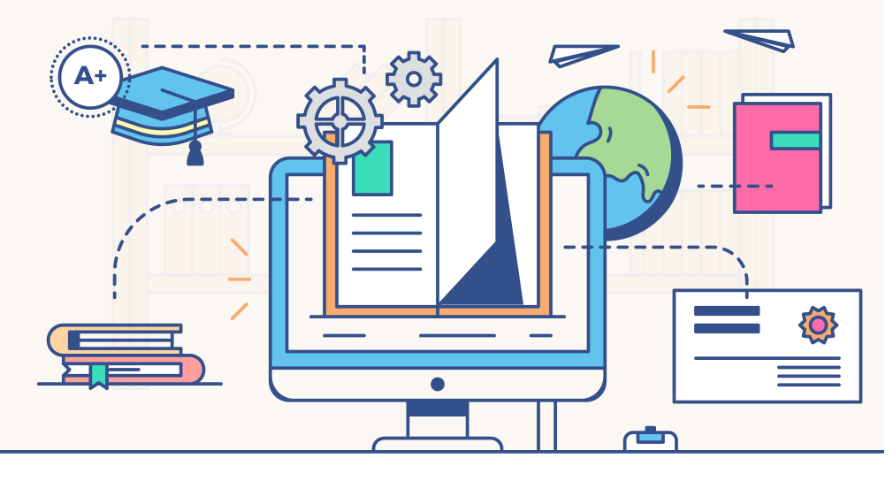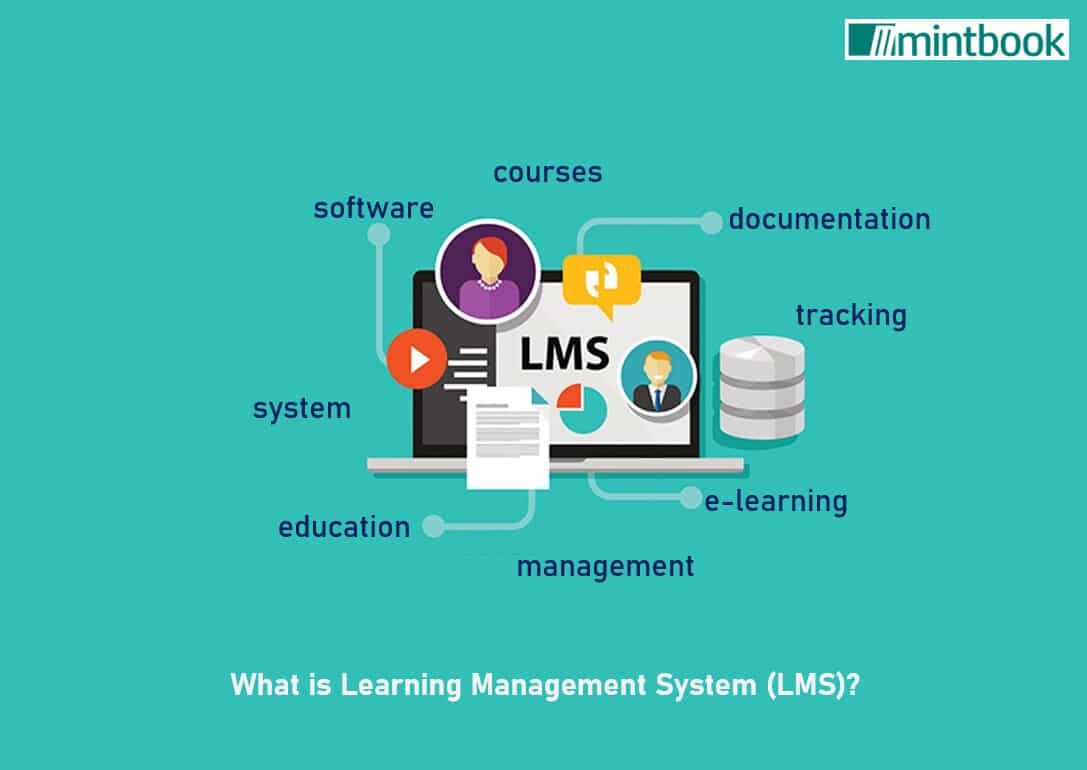Discovering Management Equipments: Enhance and Track Your Understanding Goals
In today's instructional landscape, Discovering Administration Equipment (LMS) attract attention as pivotal instruments for enhancing the performance of learning processes. By providing a central system that facilitates communication and personalizes educational experiences, these systems are significantly adopted in both scholastic and expert setups. Their logical capacities enable for precise monitoring of progress against discovering objectives, promoting accountability among customers. The concern remains: what particular functions can an LMS deal to optimize your discovering trip and guarantee you meet your purposes? Exploring this additional exposes important understandings that might change your technique to education.
What Is an Understanding Management System?
A Discovering Management System (LMS) is typically a software program application made to help with the administration, paperwork, monitoring, and distribution of instructional programs or training programs. At its core, an LMS gives a central system where instructors and learners can interact efficiently. This system streamlines the academic process by enabling teachers to develop and take care of content, analyze trainee efficiency, and communicate with learners.
LMS options come equipped with various functions, such as training course enrollment, material administration, and coverage devices (lms singapore). They support diverse understanding styles, consisting of e-learning, mixed learning, and conventional class guideline. Furthermore, LMS systems can integrate multimedia components, such as video clips and interactive quizzes, enhancing the learning experience
The execution of an LMS can differ significantly based on the requirements of the organization, varying from small companies to big universities. This adaptability makes LMS services appropriate for various contexts, consisting of corporate training, professional development, and scholastic education and learning. As modern technology continues to develop, the duty of LMS in cultivating reliable learning settings remains increasingly important, giving both instructors and learners with the necessary devices to achieve their academic objectives.
Advantages of Utilizing an LMS
Making Use Of a Discovering Administration System supplies various benefits that improve both mentor and discovering experiences. An LMS systematizes instructional sources, making it easier for instructors to organize and provide material to pupils. This streamlined accessibility to materials cultivates a reliable understanding setting where trainees can engage with coursework at their very own speed.
In addition, LMS platforms typically come geared up with analytics and reporting features, allowing instructors to track trainee progress and recognize areas where individuals may need extra support. This data-driven strategy not only notifies instruction but likewise enhances total pupil results by facilitating targeted treatments.
Additionally, the flexibility of an LMS accommodates various discovering styles and choices, making it possible for the combination of multimedia sources that deal with varied trainee requirements. This versatility is particularly beneficial in today's progressively electronic landscape.
Furthermore, an LMS promotes collaboration through discussion forums and group tasks, encouraging peer interaction and interaction. Such engagement improves crucial reasoning and analytic skills, essential parts of a versatile education. On the whole, the advantages of making use of an Understanding Monitoring System substantially contribute to a more organized, effective, and efficient instructional experience for both instructors and learners.
Trick Attributes to Seek
When picking a Discovering Management System (LMS), a number of essential features can significantly influence the performance of the platform. Most importantly, user-friendliness is vital. An user-friendly user interface makes sure that both students and managers can navigate the system easily, decreasing training time and increasing engagement.
Next, robust coverage and analytics capabilities are critical. These attributes permit organizations to track student progression, assess training course effectiveness, and recognize locations for renovation. Thorough insights promote notified decision-making and improve the overall learning experience.
Furthermore, scalability is an important factor to consider. The LMS must be able to fit a boosting variety of individuals and material without compromising efficiency. This versatility guarantees the system can expand together with the organization.
Combination with existing devices and platforms is likewise vital. An LMS that seamlessly connects like it with various other software application, such as HR systems or content authoring devices, boosts workflow effectiveness and data consistency.
Last but not least, consider mobile compatibility. A mobile-friendly LMS allows learners to gain access to products anytime, anywhere, advertising an extra versatile knowing environment. lms singapore. By prioritizing these essential features, companies can choose an LMS that effectively fulfills their instructional objectives
Carrying Out an LMS in Your Workflow
Picking the best Understanding Monitoring System (LMS) is just the very first step; successful application within your process is just as vital. To make certain a smooth transition, start by plainly specifying your discovering purposes and preferred end results. Entail vital stakeholders early on to amass assistance and address potential issues.
Following, assess existing procedures and determine exactly how the LMS can incorporate seamlessly. This includes drawing up operations, figuring out which attributes of the LMS will be used, and designating duties for content creation, monitoring, and individual gain access to. Supplying sufficient training for all individuals is critical; think about customized sessions to address various ability click to read more degrees and obligations.

Finally, maintain open lines of interaction throughout the application procedure. Normal check-ins with users will certainly assist determine any kind of challenges and help with recurring assistance, making certain that the LMS becomes an essential component of your learning ecosystem.
Best Practices for Objective Monitoring
To successfully track learning objectives within your LMS, it's vital to develop clear metrics and standards that align with your educational purposes. Begin by defining certain, measurable, achievable, appropriate, and time-bound (SMART) objectives for students. This quality will certainly make it possible for both instructors and pupils to check progression efficiently.
Use the built-in analytics devices of your LMS to gather data on training course conclusion rates, assessment ratings, and interaction levels. On a regular basis evaluate these metrics to identify fads, areas for improvement, and potential obstacles. Incorporating developmental evaluations throughout the learning procedure can supply prompt responses, permitting modifications to be made in real-time.
Additionally, motivate self-tracking among students by giving them with tools such as progression charts or control panels. This fosters responsibility and encourages them to take ownership of their academic journey.
Lastly, interact on a regular basis with learners regarding their development. Set up check-ins or feedback sessions can help strengthen objectives and encourage discussion concerning obstacles faced. By executing these finest practices, organizations can ensure reliable objective tracking, eventually improving the overall knowing experience and results within the LMS framework.

Final Thought
In summary, Learning Monitoring Solution (LMS) work as important tools for improving instructional experiences by centralizing sources and promoting interaction between educators and learners. The benefits of using an LMS, including robust analytics and versatile analyses, add to customized finding out outcomes. Carrying out an LMS effectively within academic operations and sticking to ideal methods for objective monitoring can dramatically improve responsibility and interaction. Eventually, an LMS is vital for achieving academic objectives and fostering a helpful learning environment.